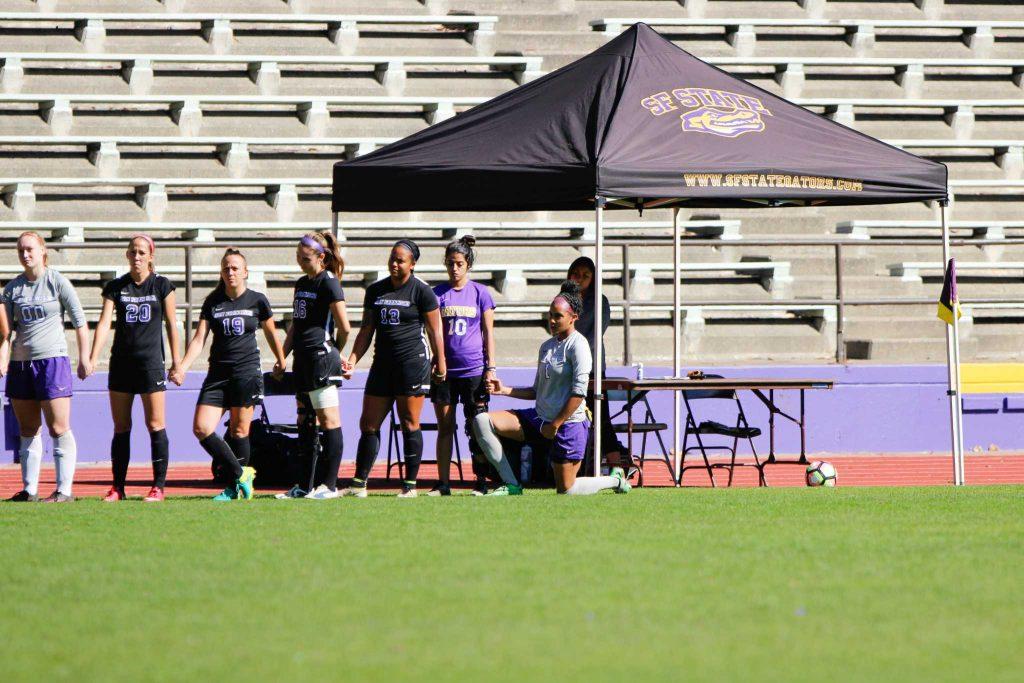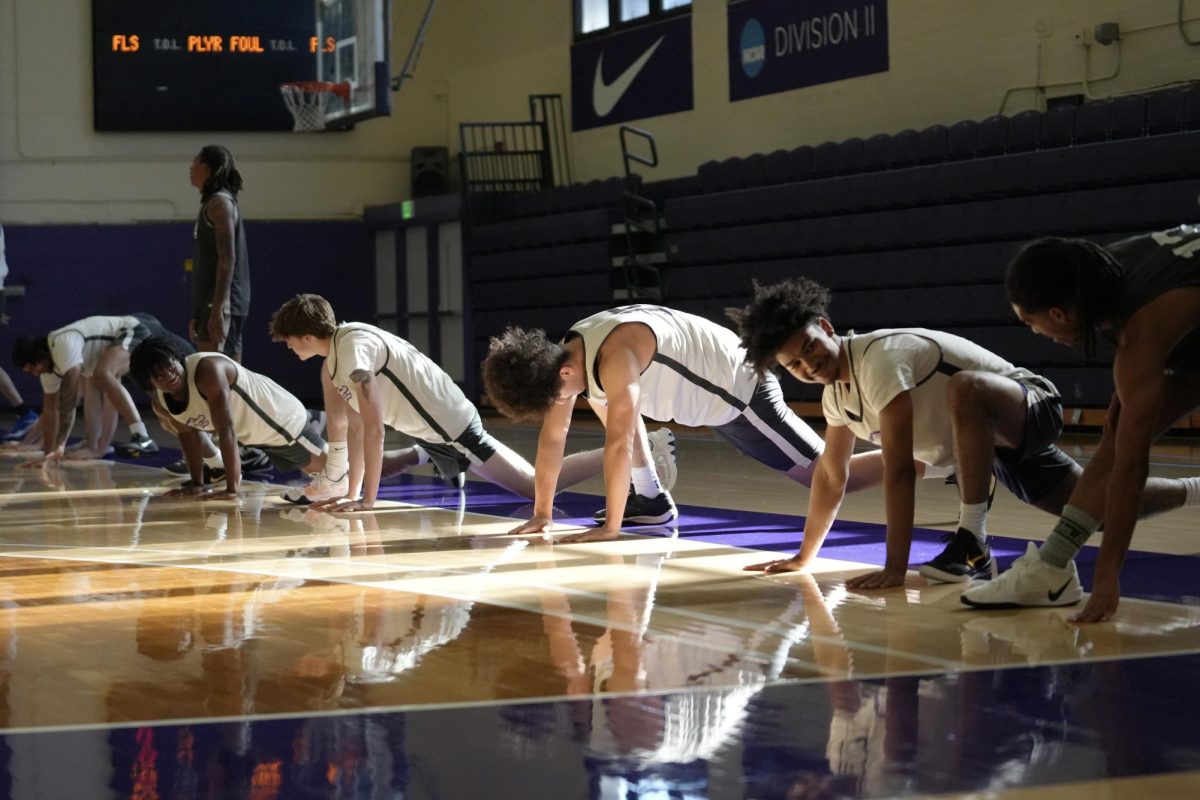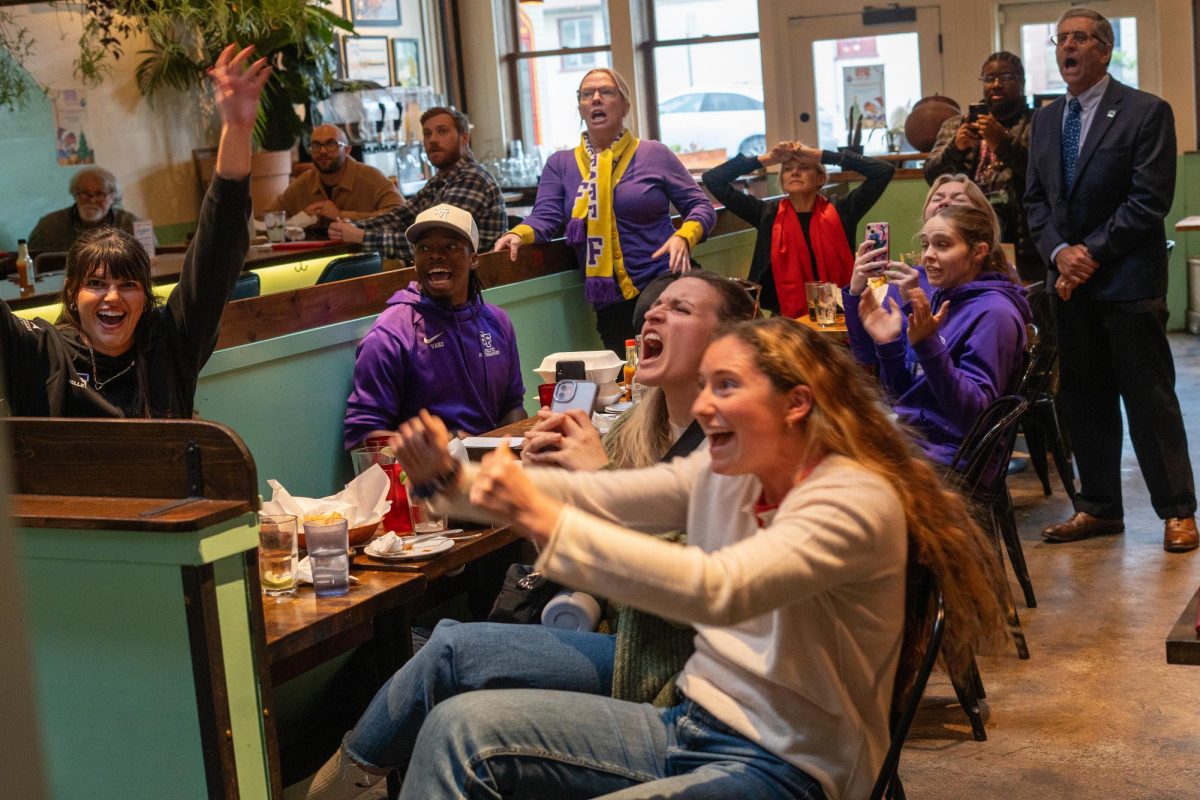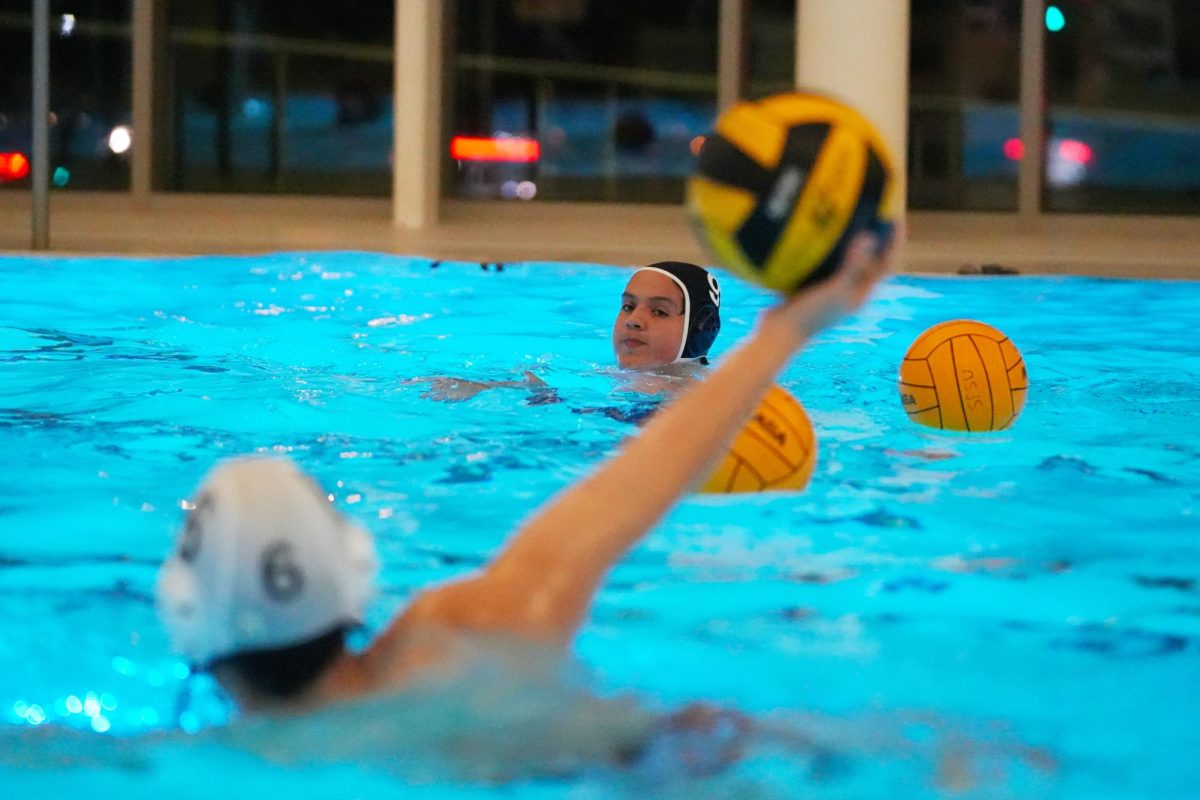On a summer night Arianna Wesley was almost hit by a car on her stroll to the gym. She exchanged words with the the driver, a white male, who responded by popping his head out the window. When he saw that Wesley was a Black woman, he replied “Shut up, Shaniqua,” turning a stereotypical Black name into a racial slur.
Because of instances of overt racism like this, Wesley is one of many athletes who has chosen to kneel during the national anthem or sit during the pledge of allegiance.
Wesley, goalkeeper for Gators women’s soccer, took up the sport about seven years ago after watching her father play the same position. Growing up, she saw the differences in how her Black father and White mother were treated in her predominantly White hometown of Temecula.
“I think living through that and growing up to understand what our national anthem means and what our pledge means made me consider kneeling,” Wesley said.
Wesley first heard about kneeling after Colin Kaepernick and women’s soccer star Megan Rapinoe protested earlier this year. Although she wasn’t a huge fan of Kaepernick, she came to respect him after he chose to kneel during the national anthem and was inspired to try the act of protest herself.
“When you listen to the words and you say the words out loud, I feel as if, sure, that could be America,” Wesley said. “But that’s not talking about my family or me. I don’t feel we are free. The good majority of groups are oppressed in the U.S. I don’t believe we have full equality.”
Because Wesley doesn’t feel that the equality and freedom championed in the pledge is extended to all Americans, she feels confident in her decision to challenge the status quo.
“I think growing up it’s just put in your routine, and as a kid you don’t think much of it to question it,” Wesley said. “You do it because you’re told to stand and you’re told to do this. I feel like if we don’t believe in something it’s okay to break routine and speak out for how you feel.”
When Wesley decided to start kneeling, her family was concerned of the possible backlash she would receive, considering how other athletes such as Kaepernick were being publicly criticized for their actions.
“She has a right to,” said Justine Mills, an athletic event staff member. “The flag is supposed to represent freedom and if the flag doesn’t honor her or do her justice, she doesn’t have to do it justice.”
Uninhibited by the possible consequences of kneeling and without asking for the permission of her teammates or coaches, Wesley kneeled for the first time on Sept. 18. Afterward, coaches pulled her into their offices and reminded her she represents the program and that her actions reflected the program but said that it was her right and that they remained neutral on her actions.
“I think it’s good she’s taking advantage of this platform,” Jada Williams, teammate and center defender, said. “We have a lot of people at games, people recording. She’s definitely caught a lot of people’s eyes and has people talking about it.”
Wesley said that politics are rooted deeply in sports, especially at the professional level and that the industry is very restrictive on player’s rights to express themselves through actions, speech and clothing.
Wesley feels fortunate enough to have the privilege to play a sport and to have the audience and platform where she can express her discontent with what she calls “injustice in America.”
“Why not? I’m a young African American woman with a platform, so why not use that privilege to my advantage,” Wesley said. “There could be people who feel just as strong or stronger than me but they don’t really have an audience to advocate to. I just think it’s so important that young adults use their platforms to speak for such a big matter.”







